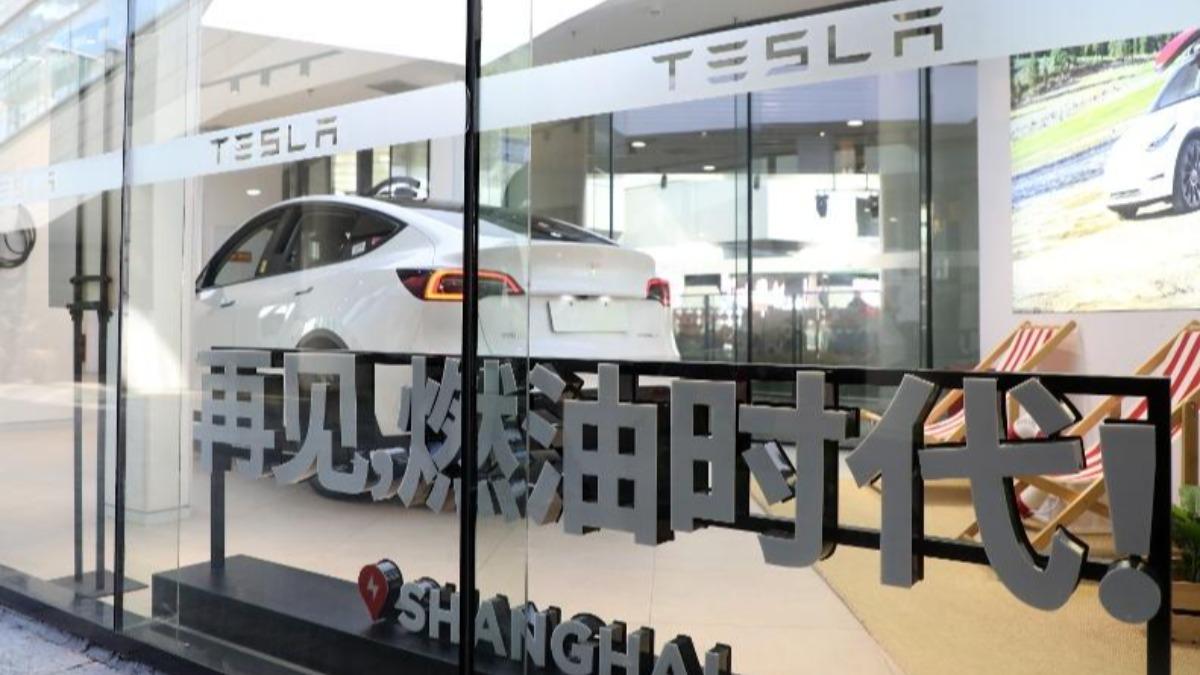"Cars have surpassed real estate to become the primary pillar of China's economy!" "The automotive industry's output value accounts for 8% of the total GDP, and even more, a third of the manufacturing output value..." These statements describe the current boom in China's automotive market. Behind this fervor, NEVs (New Energy Vehicles) play an indispensable role.
"When China prospers, Taiwanese manufacturers benefit." Whenever an industry in China booms, Taiwanese manufacturers have the opportunity to share in the prosperity. This time, in the field of NEVs, Taiwanese manufacturers have also seized business opportunities. Although these Taiwanese manufacturers have a low market share in China's complete vehicle market, each plays a crucial role.
According to a McKinsey (麥肯錫) report, just the global output value of the "three electric" core components of NEVs is expected to grow to US$460 billion by 2030. That is a mobility revolution with an annual output value of at least NT$15 trillion is underway.
Amid the low pressure of sluggish consumer spending that looms over China, Xiaomi's (小米) first car, the SU7, has unexpectedly become a hot seller, like a beam of light breaking through the clouds from the ground. At the Chaoyang Hopson One Shopping Center (朝陽合生匯購物中心) in Beijing, the crowd looking at cars was endless, with over 100,000 people booking test drives in one day and 88,898 orders placed within 24 hours.
"Cars have surpassed real estate to become the primary pillar of China's economy!" Since the China Association of Automobile Manufacturers(CAAM, 中國汽車工業協會) announced the 2023 automotive manufacturing industry's revenue of about 10.1 trillion RMB, such headlines have spread virally across the internet. The automotive industry's output value accounts for 8% of the total GDP and, even more, a third of the manufacturing output value, marking a profound transformation in China's economic structure.
The title of "world's largest automobile exporting country" has also shifted from Japan to China. In 2023, China exported 4.91 million vehicles, a growth of 57.4%, significantly surpassing Japan's 4.42 million vehicles. China remains the world's largest car sales country, setting a new historical sales record of 30.094 million vehicles in 2023.
Furthermore, BYD (比亞迪) has leaped into the global top 10 car sales brands and surpassed Tesla (特斯拉) in sales by the end of 2023. This symbolizes the rise of China's automotive industry on the global stage, with momentum and speed that have surprised the industry.

NEVs Create Huge Ripples
NEVs have played a crucial role in creating this booming car market. On average, one out of every three cars exported from China is a new energy vehicle. The domestic sales of NEVs, which were only about 180,000 units in 2015, have grown more than 50 times in less than a decade. It's now impossible to hail a gasoline car on the streets of Shanghai.
NEVs, described as "a smartphone on four wheels," not only attract cross-industry investments from major smartphone manufacturers like Huawei and Xiaomi but also draw in "new forces in car-making" with deep internet genes, such as NIO (蔚來), Li Auto (理想), and XPENG (小鵬), to join the car-making army.
An interesting contrast is that Apple abandoned its electric car project after ten years of research. Following Mercedes-Benz's (賓士) announcement to abandon its plan to fully "electrify" by 2030, BMW also announced the cessation of electric vehicle development, humorously referred to by the Chinese automotive industry as "the rise of the East and the decline of the West."
Liu Yuehai (劉曰海), former vice president of Ford China (福特) and a "veteran of Taiwan's automotive industry," estimates that gasoline cars currently account for 70% of the market sales in China, remaining the mainstream. However, within one or two years, "the market share of NEVs in China will definitely exceed half." In 2023, China sold 9.495 million NEVs. If the average price per vehicle is calculated at NT$600,000, the business opportunity amounts to NT$5.673 trillion.
According to a report by McKinsey's Center for Future Mobility (MCFM), the global market size for the "three electric" systems of NEV components is expected to grow from US$120 billion in 2023 to US$460 billion by 2030, with an annual compound growth rate of over 20%. Thousands of suppliers are clustered in the Yangtze River Delta (長三角), Pearl River Delta (珠三角), and Chengdu-Chongqing (成渝) areas, creating a massive industrial cluster.
The rapid progress in electrification and intelligence in China's automotive industry is undoubtedly redefining the entire industry's new look. It concerns not only the future of China's automotive industry but will also profoundly affect the technological development, business models, and competitive landscape of the global automotive industry over the next five to ten years. Shouldn't Taiwanese manufacturers be like flowing water, adapting and evolving ceaselessly?
This article is excerpted from the April issue of Global Views Magazine; for more articles, please visit the Global Views Magazine website: https://www.gvm.com.tw
Here is the link to the Chinese story: 直擊中國新能源車廠,新能源車台鏈出列
More coverage:
2. 華為成立電動車新公司,任正非卻不造車的「宮心計」
3. AI內閣需要的務實野心










